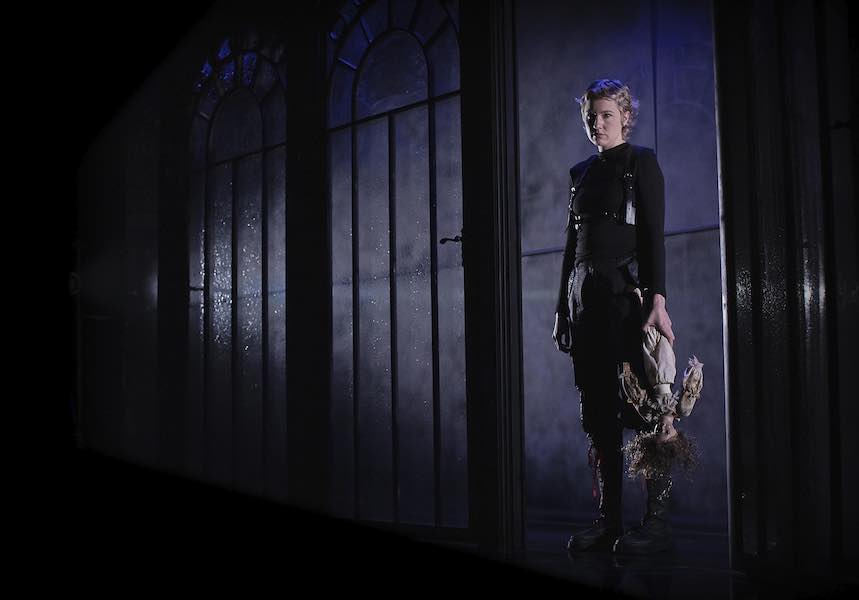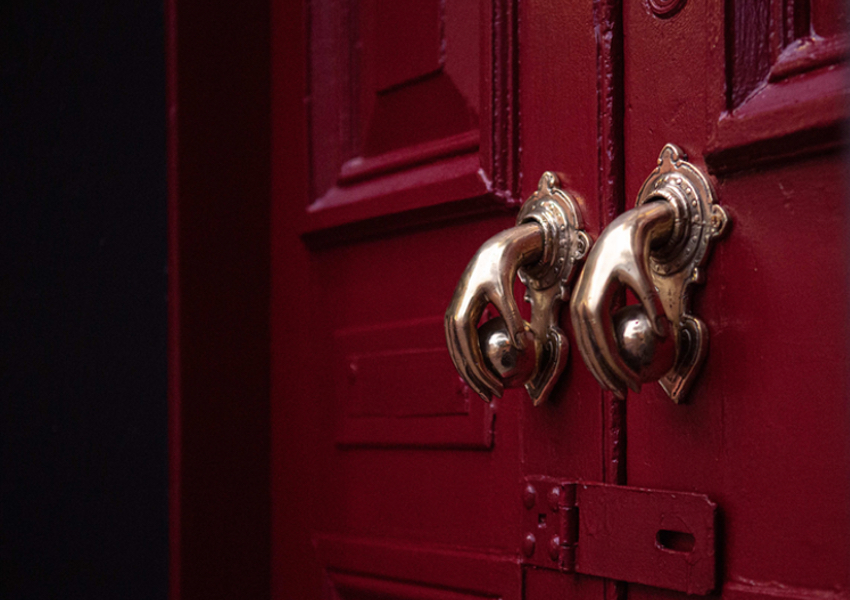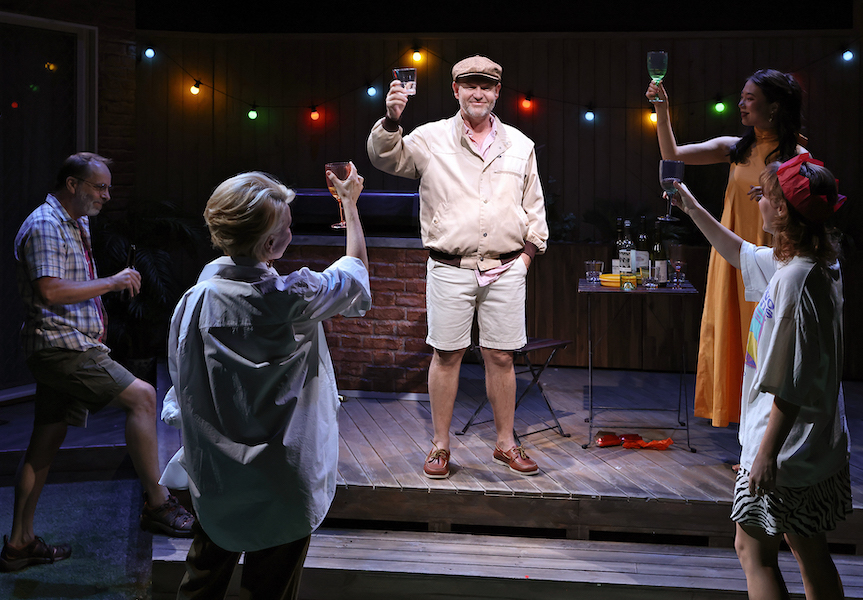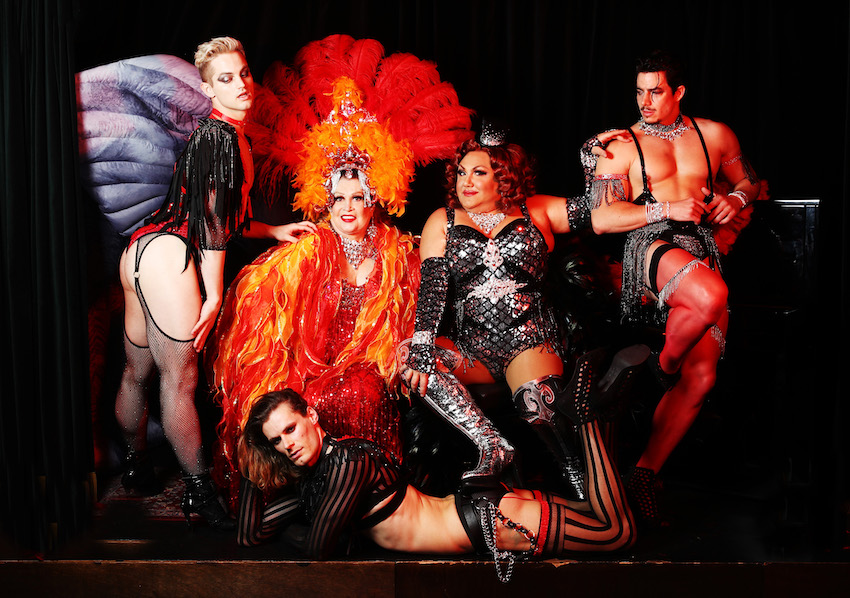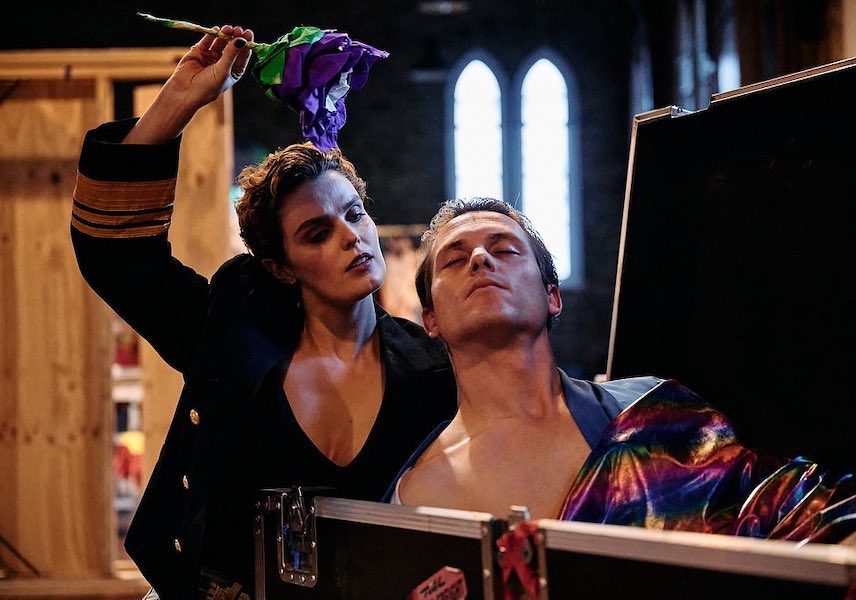
THEATRE: CATHOLIC SCHOOL GIRLS
The sixties: a time of social and political upheaval, the heyday of the Beatles, the birth of the pill and the sexual revolution. What would it have been like to grow up then? And what if you were Catholic? The upcoming adaptation of the 1982 off Broadway play, Catholic School Girls, explores these questions.
“The play is both funny and moving and clearly a criticism of the way the Catholic Church taught young people in the 1960s,” says the director, Kingston Anderson. “It reflects on a time of change and how the authoritarian regimes that were in place in education came into direct conflict with the changing social attitudes of the day.”
The play explores the formative years of a group of four girls who attend Catholic school between seven and 14 years of age. We follow them as they experience the highs and lows Catholic education in the 1960s.
“The play starts with a group of ‘grown up’ women revisiting their old school before taking us on a journey into their past,” he says. “We see them battle with nuns, make new friends and come to terms with their Catholic upbringing.”
This concept of ‘revisiting’ was something, actress and producer, Helen O’Connor also said the play explored.
“The character I play, Elizabeth, has a real spiritual crisis,” says O’Connor. “She has a real crisis of faith, revisiting her childhood and the play’s about her revisiting that.”
Joined onstage by Lucinda Armour, Kim Lewis and Rhonda Doyle, each actress plays a student – there is Elizabeth – the thinker, Colleen – the troublemaker, Maria Theresa – the shy misfit and teacher’s pet, Wanda – and a nun.
“I love playing Elizabeth … but in some ways, it’s equally wonderful playing these tyrannical nuns. One of the nuns is incredibly loving and sweet and very senile [sic],” she says.
“One is a true disciplinarian; my nun is a little bit wacky, and she’s a little OCD. But she’s the accountant of school, so she’s constantly fundraising, and we think she might be an alcoholic because she’s always got a terrible hangover – so any loud noises are very irritating. She’s very irritable, but she’s … kind of anal as well, so she likes everything neat and tidy.”
“Because it’s a memory play, the nuns are seen through the eyes of the author. They’re a little bit exaggerated because they’re a child remembering a nun so they get to be larger than life and they’re slightly caricatured in a way, which is fun because you get to … exaggerate.”
While this juxtaposition of opposites – old and young, past and present – creates many humorous moments it also invokes the darker side of Catholicism. This is illustrated through the character, Elizabeth, who questions the dogma of the religion.
“Without giving the play away, she’s very attached to her grandmother and something happens to the grandmother, and in fact one of the nuns picks on her [sic]…”
“I think what we’re seeing about the church at that time was all about control, and the nuns were teaching control, so for them to ask questions that were outside the teachings – for this particular nun – absolutely a no go. So she really goes for this kid because she’s intelligent, she questioning and she’s fearless.”
Besides the issue of inflicting corporeal punishment – something she herself was exposed to growing up a Catholic – O’Connor thinks that, “A lot has happened to the church,” since the play premiered in the 80s. Allegations of sexual abuse had not yet surfaced.
Even though this isn’t reflected in the play, she believes many people were still angry back then – that the healing hadn’t begun. However, she adds that this version of the play, although possibly stirring bad memories, has an uplifting and positive message, reminding us that there were some wonderful, hilarious experiences too.
“I think what we’ve found in the play, what happened to these – particularly this woman that I play, is that she comes full circle,” she says.
“No matter what happens, what we’ve kind of come to is that there’s a real joyousness and hope in the fact that she’s rediscovered her faith. And that’s a really wonderful thing and what happens to anyone in their lives, what happened to you in school or outside of school, that there’s always room to revisit that faith.”
Mar 12–Apr 14, Darlinghurst Theatre, 19 Greenknowe Ave, Potts Point, $32-37, 8356 9987, darlinghursttheatre.com.au




